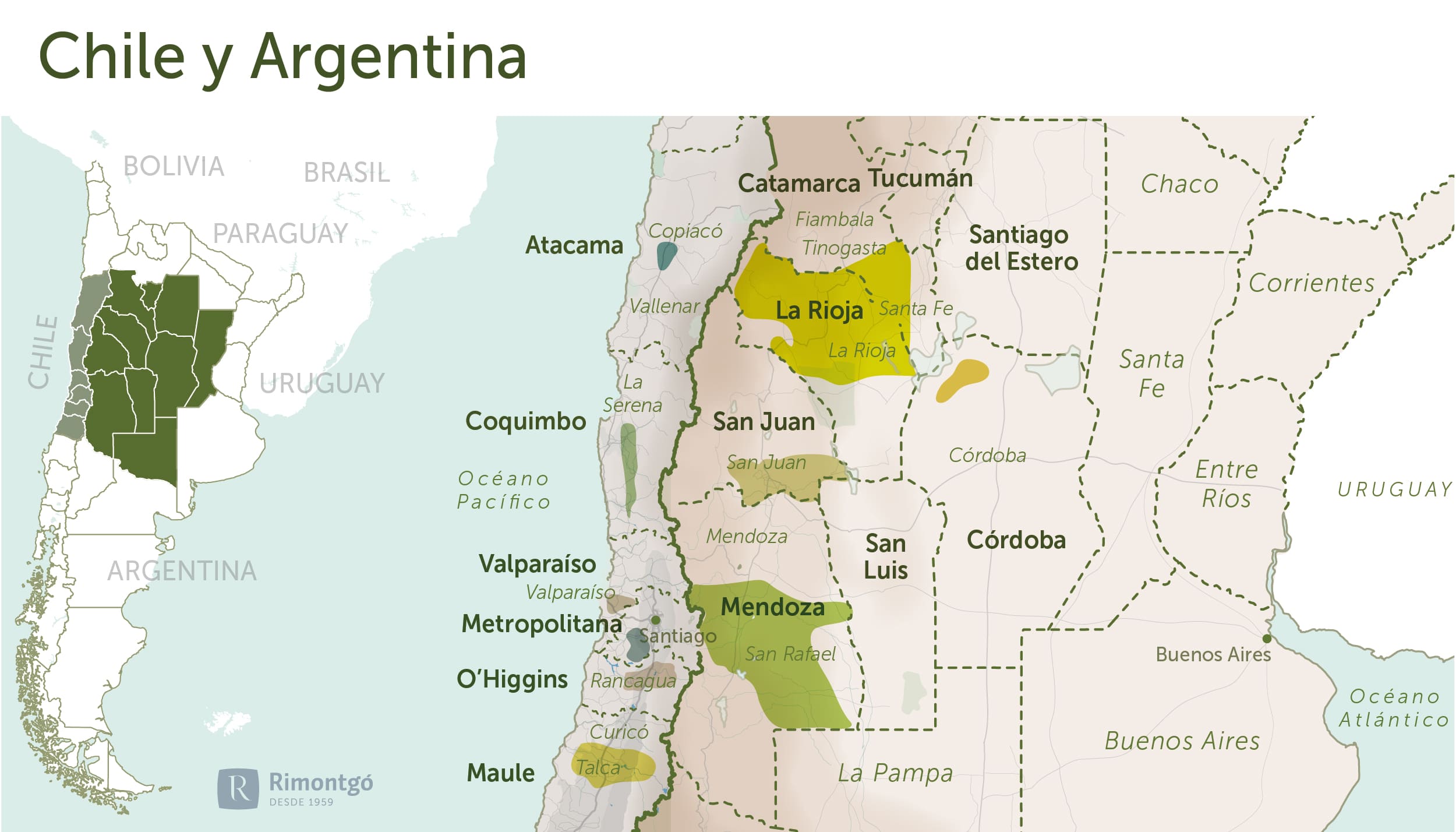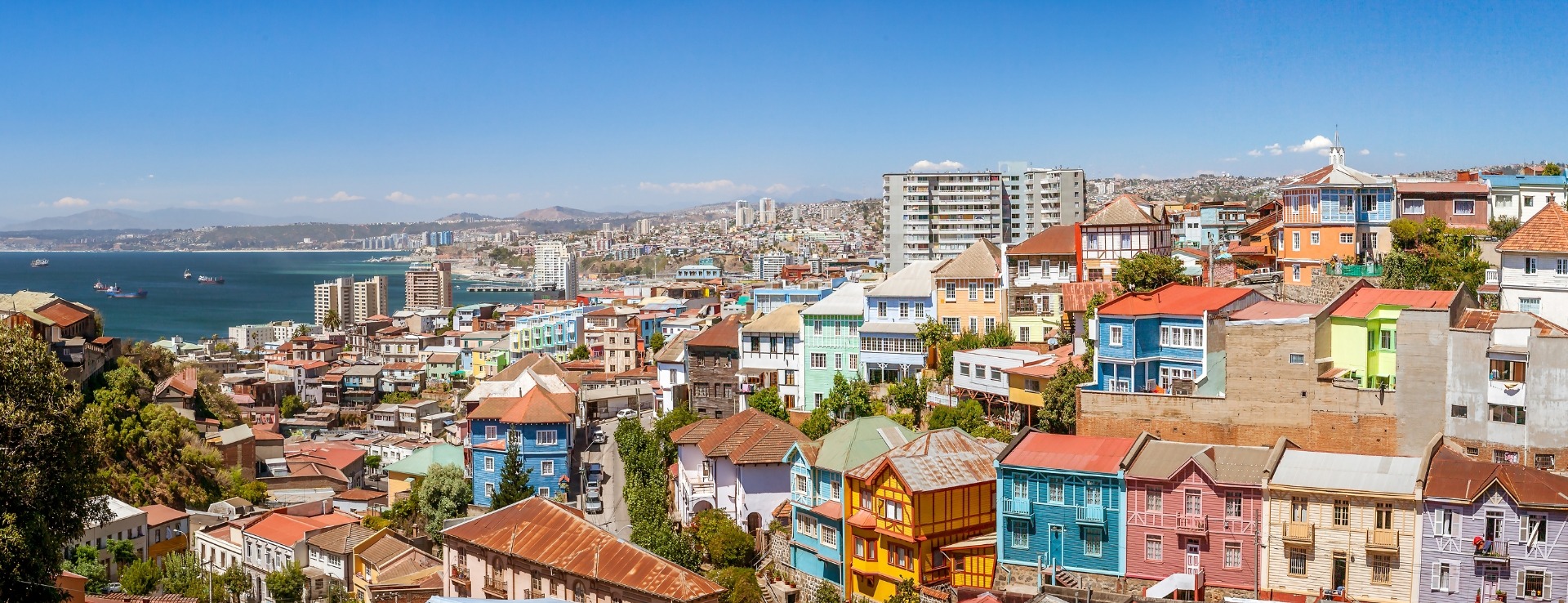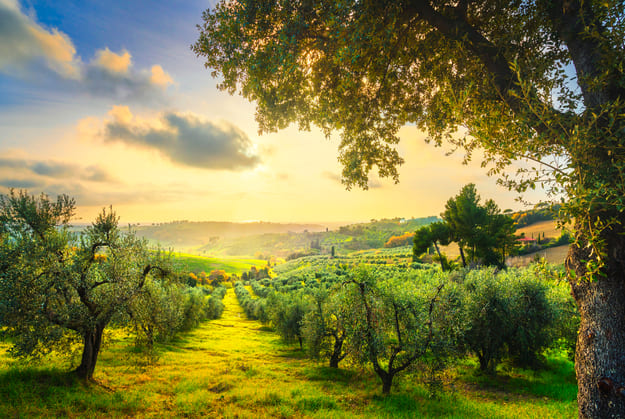Find your olive grove or oil mill
Infographic of the area

Chile
There are around 11 million hectares of olive trees planted around the world. It has been cultivated for at least 6000 years and originated in Asia Minor, from where it spread to the Mediterranean basin between 3000 and 4000 BC.
It was brought by the Spanish in 1492 and mixed with the native flora and fauna. By 1560, olive plantations were already established in Mexico, and then reached Peru, California, Argentina and Chile.
Commercial olive tree plantations in Chile started in 1952, with José Canepa Vacarezza. Some small companies also followed his example, but their cultivation remained concentrated only in the Sagrada Familia, Limarí and Huasco areas. It was only at the end of the 1990s, with the impetus of Elvio Olave, that greater investments, the incorporation of modern technologies and the first exports began.
From 2010 to 2020, olive plantations have grown considerably, reaching 25,000 hectares and a production of 18,500 tons. Sixty percent of this production is destined for export, mainly to Brazil and the United States. Chile is now the tenth largest exporter of olive oil in the world, mainly in the extra virgin segment, the highest quality segment. Commercial cultivation of olives for oil takes place from the Atacama region to the Maule region. Regarding the regional distribution of the planted area, the Metropolitan, Maule and O'Higgins regions account for most of the planted area, also in the Coquimbo region plantations have been made.
Main varieties in Chile:
The Arbequina variety, coming from Spain, is the most planted in Chile, representing about 60% of the total, followed by the Arbosana variety with 20%, Italian varieties (Frantoio and Leccino 10%), Greek (Koroneiki), Picual and Coratina. Most of these varieties are suitable for super-intensive cultivation.
Olive growing has undergone a major modernisation thanks to technological advances. One of the most important of these is the mechanisation of harvesting. Agronomic production systems have also evolved in recent years to intensive and super-intensive models. In Chile, 57% of plantations are intensive and super-intensive.
The olive tree is a perennial, subtropical species that requires warm temperate climates. It prefers moderate temperatures between 10 and 30 degrees. It can withstand high temperatures in summer, up to 40 degrees, but the tree only works between 15 and 35 degrees. Outside this range, its activity stops. The olive tree also needs a certain amount of cold and this is the reason why they cannot be grown in tropical climates. For example, the Arbequina variety, the most widely planted in Chile, starts cold accumulation with temperatures below 7.3 degrees and needs to accumulate at least 350 hours of cold to achieve a uniform sprouting.
The thermal accumulation of the olive tree from flowering to maturity needs 1066 degree days with a base growing temperature of 12.5 degrees to achieve a good sugar content in the fruit.
Although the olive tree tolerates many types of soils, its productivity increases in soils with loam, sandy loam and clay loam textures. It must have a minimum effective depth of 80 centimetres. The olive tree is one of the species with the greatest tolerance to soils with high salinity, very common in the central zone of Chile.
Olives
Subscribe to our mailing list to receive news about olive groves and oil mills.



